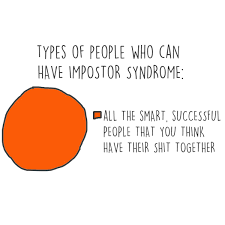
On Thursday I’ll be delivering a keynote at the West Chester University Scholarship of Teaching, Learning and Assessment Conference #wcusotla . The audience will be predominantly professors from various universities. What’s impressive about this, is the topic. The committee asked me to speak about Cultivating Compassion. There aren’t words for how extraordinary this is. For those of you not in education, let me explain. In the past three decades that I’ve been in education, we’ve focused on achievement, advancement, engagement and measuring academic outcomes. Throughout that entire time, I’ve pushed for what feels like an uphill rock on the need to invest as much time and energy focused on the social and emotional aspect of teaching, leading, and learning in schools.
In a country where the rhetoric is focused on “being first, being better than others, being great” the topic of compassion is a more global empathetic, inclusive stance. We’re living in a world where we seem increasingly divided, and hostile towards others who are different or who think differently than us. Now more than ever we need to teach empathy, compassion, and emotional intelligence.
Compassion for others begins with self-compassion. Numerous research studies show that self-compassion is strongly associated with emotional wellbeing. Trust me, we need to focus on well-being. Eighty percent of college students report feeling overwhelmed and stressed on a daily basis. Suicide is the third leading cause of death among college students.
How do I plan on imparting the need for cultivating compassion in education? I’ll focus on self-compassion. Teaching at its core is demonstrating- and we teach what we need to learn. Professors have been climbing the academic ladder with the ever changing, rising bar of measurement since the beginning of time. Many of us suffer from the imposter syndrome. We would all be well served by a healthy dose of self-compassion.

Having compassion for oneself is really no different than having compassion for others. Think about what the experience of compassion feels like. First, to have compassion for others you must notice that they are suffering. Second, compassion involves feeling moved by others’ suffering so that your heart responds to their pain. Having compassion also means that you offer understanding and kindness to others when they fail or make mistakes, rather than judging them harshly. Finally, when you feel compassion for another, it means that you realize that suffering, failure, and imperfection are part of the shared human experience. Haven’t we all fallen down at some time in our lives? The lesson is how to get back up; and as we rise up, we need to go easy on ourselves, and quiet our judging inner critic. Reduce judging, reduce anxiety and stress.
Most importantly, in the world of academia, where striving and achieving is what’s expected, we need to make it okay to not always get that A, and help our students realize that their best attempt really is good enough. They are good enough. Often my students tell me that what they want most is to be true to themselves and authentic but that almost daily they lose sight of these aspirations and intentions and they get caught up in reactivity- self-judgment, blaming others and just going through life on autopilot.
My goal in writing my book Practicing Presence and presenting on this topic is to encourage us to all pause and take stock of why we really are all here. Not just here in academia, but here in this world. Personally, I believe our purpose is to grow and learn as much as we can in this lifetime. For those of us privileged to be in the position to teach, we have an opportunity to expand our students’ minds. How we do this doesn’t just have to do with the content of the subject we teach, it also has to do with the social and emotional learning aspect of our classrooms and offices. Sadly, some have labeled these as the soft skills, however, they are the foundational skills that will have a monumental effect on the trajectory of our students’ futures.









Leave a Reply
Want to join the discussion?Feel free to contribute!